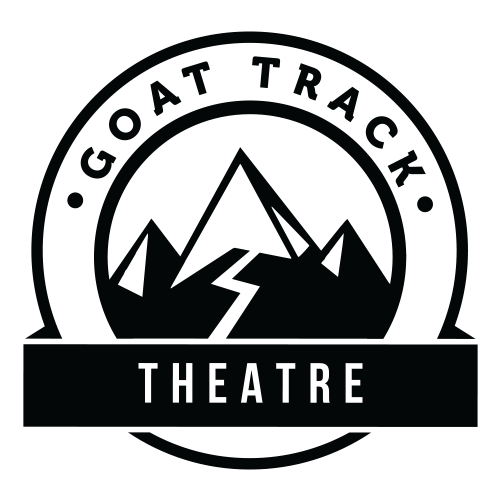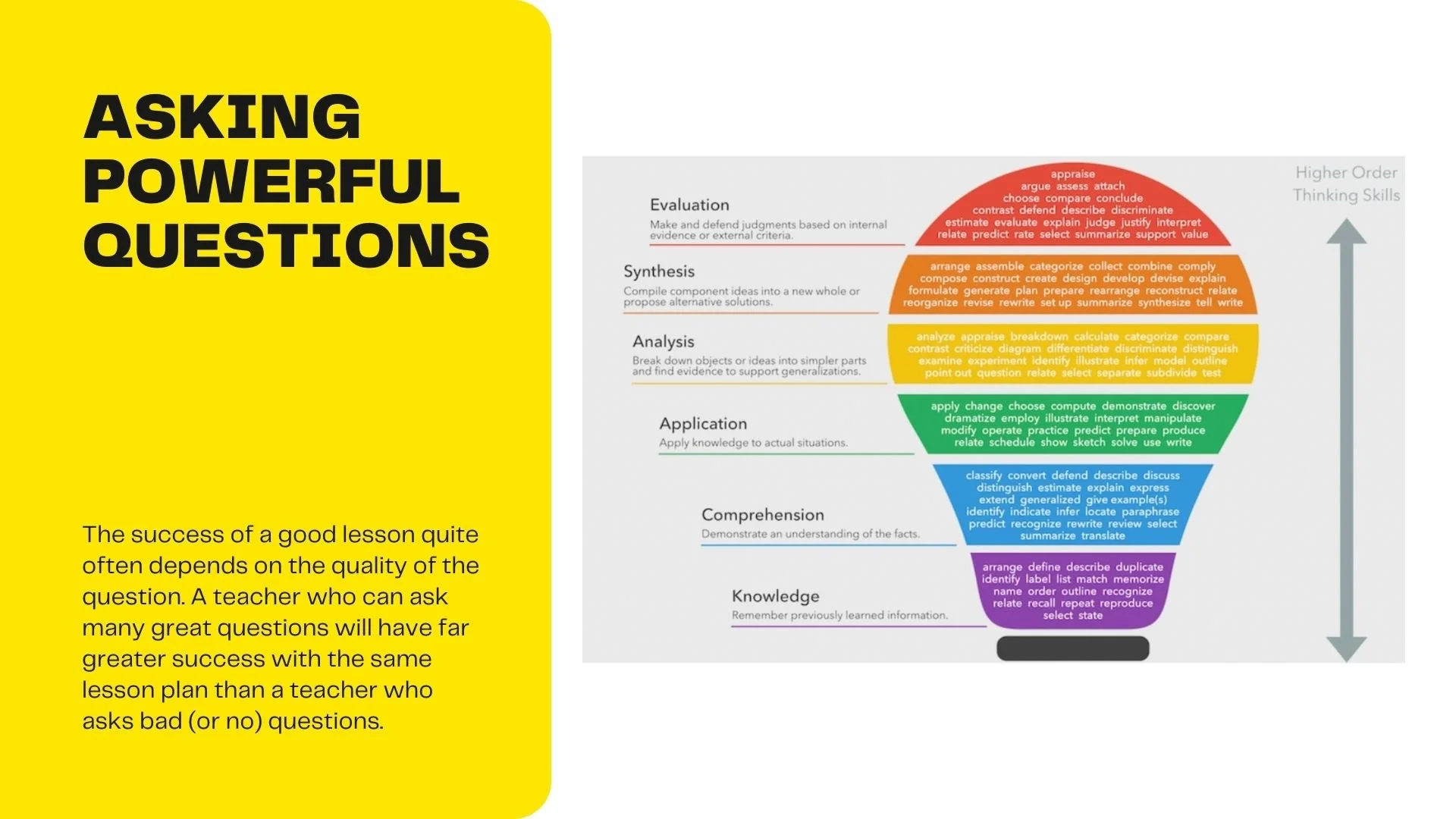TYPES OF QUESTIONS (& SEQUENCING)
The key to a great questions is asking the right question at the right time. You can run the exact lesson plan with a series of bad questions (or none at all) and it can have a terrible outcome BUT if you asked some kick arse questions it would transform the learning space and understanding / participation of the students. NEVER underestimate the power of a question.
There are 6 types of questions:
KNOWLEDGE - this is when you ask students to remember previously learned information. Eg: Can you list some characteristics of Arlecchino?
COMPREHENSION - asking students to demonstrate their understanding of some of the facts regarding a certain topic. Eg: How would you summarise the form of Commedia del’arte?
APPLICATION - this is when students have to apply their understanding of actual situations. Eg: What would happen is Arlecchino and Brighella were caught stealing from Pantalone?
ANALYSIS - an analysis question asks student to break down an idea or understanding into simpler parts and find evidence to support that idea. Eg: Can you compare / contract how Captiano and Dottore might interact with a love interest?
CREATION (SYNTHESIS) - creation questions (or a synthesis question) is when a student has to use lots of different pieces of information and transform it into something new. Eg: Could you create a funny scenario between Arlecchino and Pantalone involving a miscommunication?
EVALUATION - these types of questions are when a student has to assess or judge something against a set of criteria. Eg: How could we deepen the tension in this scene OR How effective do you think the tension was in this scene?
There are two ways that you can go about ordering or sequencing your questions throughout the course of a lesson:
WIDE - questioning WIDE means you are progressing through the questions from low order thinking through to high order thinking as you progress through the lesson. The start will be filled with low order thinking questions and as we get towards the end we might ask more high order thinking questions.
DEEP - questioning DEEP is when you pull up at a point in the lesson and you start to ask questions deeply; starting at low order questions and with each question you go further into high order thinking. Once you’ve finished the 6 deep questions, you then move on to the next part of the lesson and then stop again, going deep with another set of 6 questions.

